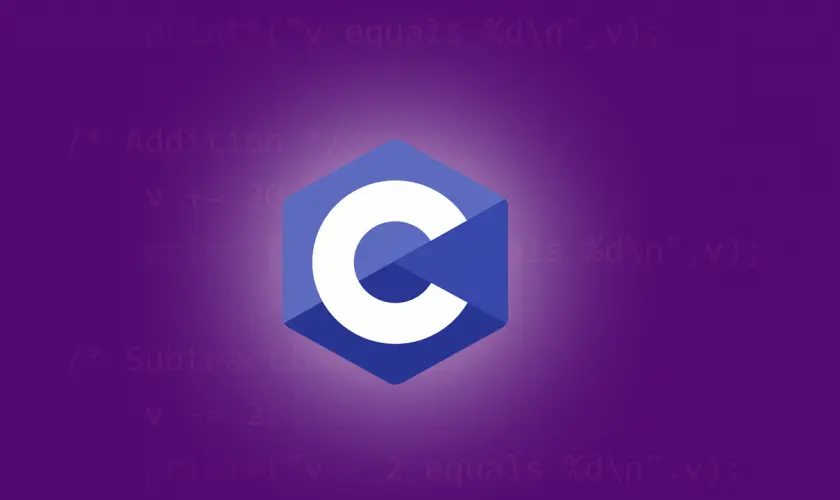Why Learning C as Your First Language Matters in the Age of AI
Explore why learning C first is essential in the AI era, providing fundamental skills for understanding and optimizing modern software development.

In an era where artificial intelligence seems to be taking over every aspect of technology, including code generation, you might wonder why you should bother learning to program at all, let alone start with a language as fundamental as C. The truth is, in this rapidly evolving technological landscape, understanding the core principles of computing is more crucial than ever. And there’s no better way to gain this understanding than by learning C as your first programming language.
C, created in the early 1970s by Dennis Ritchie, isn’t just another programming language. It’s the foundation upon which much of our modern computing world is built. Operating systems, databases, and even many popular programming languages are implemented in C or its direct descendant, C++. When you learn C, you’re not just learning a language; you’re learning how computers think.
But why is this so important, especially now? As AI and machine learning tools become more prevalent in software development, there’s a growing misconception that programming is becoming obsolete. Nothing could be further from the truth. While AI can generate code, it can’t replace the deep understanding and problem-solving skills of a human programmer. In fact, as AI tools become more integrated into the development process, having a solid grasp of programming fundamentals becomes even more critical.
Consider this: AI-generated code is only as good as the prompts and understanding of the person using the AI. If you don’t understand the underlying principles of how code works, how memory is managed, or how data structures are implemented, you won’t be able to effectively use or debug AI-generated code. You’ll be at the mercy of the tool, unable to verify its output or optimize its suggestions.
This is where C shines. Unlike higher-level languages that abstract away many details of how a computer works, C forces you to engage with these concepts directly. When you declare a variable in C, you’re not just giving it a name; you’re allocating a specific amount of memory. When you use a pointer, you’re directly manipulating memory addresses. This level of control and understanding is invaluable, even if you eventually move on to other languages.
Let’s take a concrete example. Consider this simple C code:
int *array = (int *)malloc(10 * sizeof(int));
if (array == NULL) {
// Handle allocation failure
return 1;
}
// Use the array
free(array); // Don't forget to free!
This snippet demonstrates memory allocation, error checking, and memory deallocation. In a higher-level language, much of this would be handled automatically. But by learning C, you understand what’s happening under the hood. This knowledge is crucial when you’re trying to optimize performance, debug memory leaks, or understand why your AI-generated code isn’t working as expected.
Moreover, C’s proximity to the hardware gives you a unique perspective on how computers actually process instructions. This understanding is invaluable when working with AI and machine learning models, where performance optimization can make the difference between a model that runs in minutes versus hours.
But the benefits of learning C go beyond just understanding memory management and low-level operations. C teaches you to think logically and solve problems methodically. When you encounter a segmentation fault or a buffer overflow, you can’t rely on a friendly error message or a garbage collector to save you. You have to dig in, understand what’s happening, and fix it yourself. This problem-solving mindset is crucial in all areas of programming, including when working with AI tools.
Consider the world of embedded systems and Internet of Things (IoT) devices. As our world becomes increasingly connected, with smart devices in our homes, cars, and even our bodies, the need for efficient, low-level programming becomes more critical. C is still the language of choice for many of these systems due to its efficiency and direct hardware control. By learning C, you’re positioning yourself to work on the cutting edge of these technologies.
Furthermore, many modern programming languages, including Python and JavaScript, have interpreters or runtime environments implemented in C. By understanding C, you gain insights into how these higher-level languages work under the hood. This knowledge allows you to write more efficient code in any language and make informed decisions about which language to use for a given task.
Now, you might be thinking, “This all sounds great, but isn’t C difficult to learn?” It’s true that C has a steeper learning curve than some modern languages. You’ll encounter concepts like pointers, manual memory management, and a lack of built-in data structures that might seem daunting at first. But this challenge is precisely what makes C such an effective learning tool.
When you learn C, you’re not just learning syntax; you’re learning how to think like a programmer. You’re building a mental model of how computers work, how memory is organized, and how data is processed. This fundamental understanding will serve you well throughout your programming career, regardless of which languages or tools you ultimately use.
Moreover, the skills you develop while learning C – attention to detail, logical thinking, and a deep understanding of program flow – are exactly the skills you need to effectively work with and alongside AI tools. As AI becomes more integrated into the development process, the ability to understand, verify, and optimize AI-generated code will become increasingly valuable.
In the age of AI, it might be tempting to start with a language that promises quick results or relies heavily on pre-built libraries and frameworks. But by doing so, you risk building your programming knowledge on a shaky foundation. Learning C first ensures that you have a rock-solid understanding of programming fundamentals that will serve you well as you explore more advanced concepts, including AI and machine learning.
The journey of learning C might be challenging, but it’s incredibly rewarding. You’ll emerge with a deeper understanding of programming, a sharper problem-solving mindset, and a skill set that will serve you throughout your entire programming career. Whether you’re building the next great app, working on cutting-edge AI systems, or developing software for IoT devices, the foundational knowledge you gain from C will be invaluable.
In conclusion, as we navigate the exciting and sometimes uncertain waters of AI-assisted development, having a strong grasp of programming fundamentals is more important than ever. Learning C as your first programming language provides this foundation. It equips you with the knowledge and skills to not just use AI tools effectively, but to understand, optimize, and innovate beyond their capabilities. In the age of AI, don’t just learn to code – learn to truly understand computing. Start with C, and build your programming future on the most solid foundation possible.
